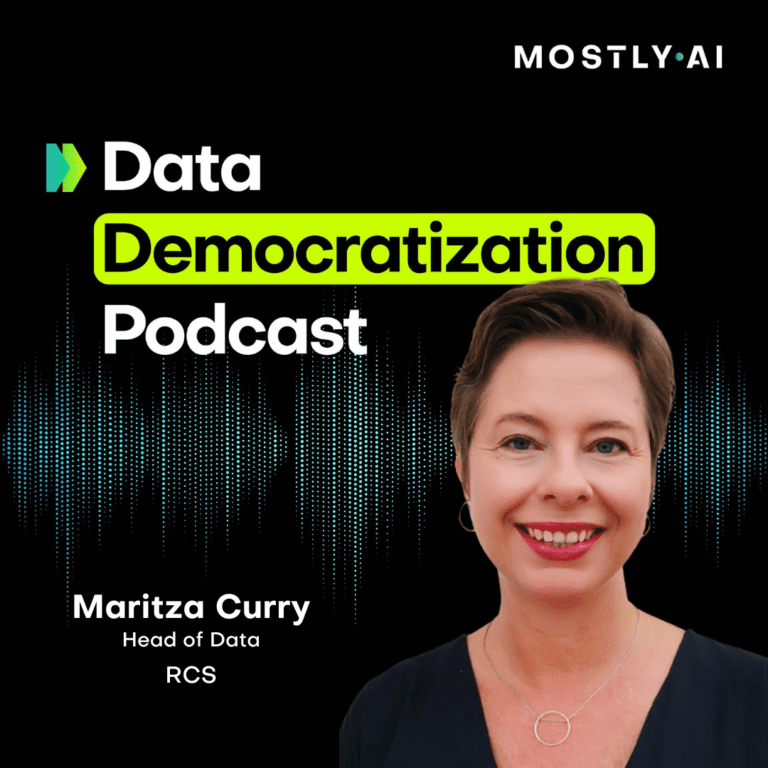GenAI for tabular data

What is synthetic data, anyway?
Synthetic data is an artificial version of your real data
Synthetic data is NOT
mock data
Synthetic data is safer than legacy data anonymization
Why use synthetic data?
Synthetic data is more accessible than real data.

Managing Director, IT Solutions
- ERSTE Group
Synthetic data is more flexible than real data.

Global Head of External Innovation and Venture Investing
- Citi Innovation Labs
Synthetic data is smarter than real data.

CEO
- Merkur Innovation Lab
Why MOSTLY AI?
We’re the pioneer
Highest accuracy
No code / API & Python Client
Get started with MOSTLY AI
Python Client magic
#!pip install mostlyai
from mostlyai import MostlyAI
mostly = MostlyAI(api_key='your_api_key')
# train a generator on your data
g = mostly.train(data)
# generate a synthetic dataset
sd = mostly.generate(g)
# consume synthetic as pd.DataFrame
syn = sd.data()




















